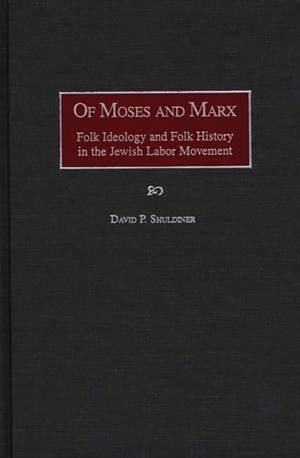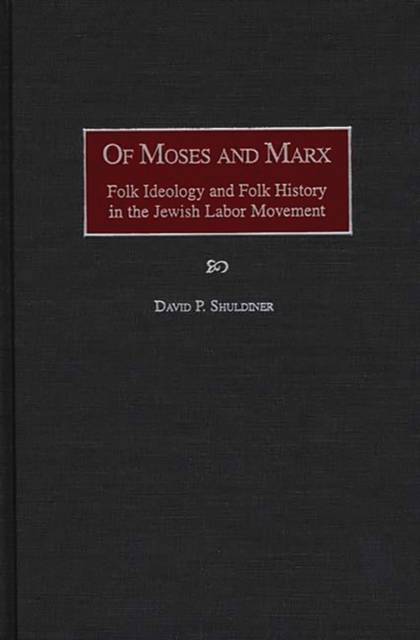
- Afhalen na 1 uur in een winkel met voorraad
- Gratis thuislevering in België vanaf € 30
- Ruim aanbod met 7 miljoen producten
- Afhalen na 1 uur in een winkel met voorraad
- Gratis thuislevering in België vanaf € 30
- Ruim aanbod met 7 miljoen producten
Of Moses and Marx
Folk Ideology and Folk History in the Jewish Labor Movement
David P ShuldinerOmschrijving
The Jewish Labor Movement was a radical subculture that flourished within the trade union and political movements in the United States in the early part of the twentieth century. Jewish immigrant activists--socialists, communists, anarchists, and labor Zionists--adapted aspects of the traditions with which they were raised in order to express the politics of social transformation. In doing so, they created a folk ideology which reflected their dual ethnic/class identity. This book explores that folk ideology, through an analysis of interviews with participants in the Jewish Labor Movement as well as through a survey of the voluminous literature written about that movement.
A synthesis of political ideology and ethnic tradition was carefully crafted by secular working-class Jewish immigrant radicals who rediscovered and reformulated elements of Jewish traditions as vehicles for political organizing. Commonly held symbols of their cultural identity--the Yiddish language, rituals such as the Passover seder, remembered narratives of the Eastern European shtetl, and biblical imagery--served as powerful tools in forging political solidarity among fellow Jewish workers and activists within the Jewish Labor Movement.Specificaties
Betrokkenen
- Auteur(s):
- Uitgeverij:
Inhoud
- Aantal bladzijden:
- 264
- Taal:
- Engels
Eigenschappen
- Productcode (EAN):
- 9780897896177
- Verschijningsdatum:
- 30/06/1999
- Uitvoering:
- Hardcover
- Formaat:
- Genaaid
- Afmetingen:
- 164 mm x 245 mm
- Gewicht:
- 571 g

Alleen bij Standaard Boekhandel
Beoordelingen
We publiceren alleen reviews die voldoen aan de voorwaarden voor reviews. Bekijk onze voorwaarden voor reviews.








